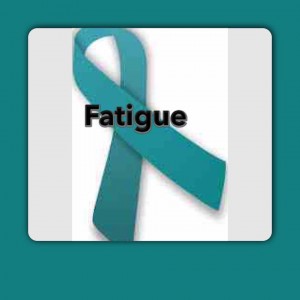Fatigue in Systemic Sclerosis: An Unwelcome Symptom

 The fatigue that accompanies scleroderma is not only an unwelcome, relentless symptom that is difficult to control and manage, but also can quite often be overlooked, with the initial management of the disease focussing on the more important (quite rightly), life threatening skin and organ fibrosis progression.
The fatigue that accompanies scleroderma is not only an unwelcome, relentless symptom that is difficult to control and manage, but also can quite often be overlooked, with the initial management of the disease focussing on the more important (quite rightly), life threatening skin and organ fibrosis progression.
There are possibly a combination of factors that cause fatigue in scleroderma patients — not only the body’s immune system being out of control, but also medications, lack of quality sleep, and constant pain are all contributory factors in the fatigue mix.
Even the simplest, most basic of tasks (bathing, getting dressed, etc.) can seem to require Herculean strength on some days, which can lead into months, years, decades . . .
The severity of the scleroderma patient fatigue is not on the same level as a ‘healthy’ person would feel fatigue. The fatigue I felt before scleroderma turned up in my body, (usually caused by a few nights out enjoying myself, being a singleton living in a vibrant city), would probably go away by having ‘an early night.’
That fatigue was a breeze compared to the typhoon that has engulfed me for most of the last 19 years, and, which is gradually improving to an almost acceptable, manageable level. This has required extreme self discipline on my part, by being awake in daylight hours and keeping sensible bedtime hours — in the hope of minimizing the severity of the other multitude of symptoms, of the next day!
And of course, it is always a cause of celebration to be able to sleep long enough without being awoken by pain. That is, if you have managed to get to sleep in the first place!
I have to prepare my body for weeks in advance of a ‘big day out’ — which is usually to attend a meeting in London for my NHS or EMA advisory roles. My last ‘big day out’ was to attend the Rare Disease UK reception at the House of Commons for Rare Disease Day, I blogged about the event here.
Although the experience of attending the reception was one of the highlights of my 19 year patient journey, my body, 5 weeks later, is only just, easing its protest at having been out and about! For the two days following the event, I was unable to eat or digest food as my body was too exhausted! I was not even able to stand long enough to make my daily juices! But at least that was an improvement from the experience of the previous ‘big day out,’ where I blacked out on my tiled bathroom floor whilst making my way to bed! I now have a dent at the top of my forehead as a reminder that I have to pace myself!
It would appear that other autoimmune patients experience a similar partnership with fatigue. Katie, who runs the www.misstreated.org blog, is a lupus patient and included the following very helpful fatigue scale in her recent blog post on tiredness:
FATIGUE SCALE
10. Can barely move. Can’t talk
9. Can barely move. Can talk
8. Can move, but cant do much more than watch tv
7. Can watch tv and play a game on my phone simultaneously
6. Can do work on my computer lying in bed
5. Can get around the house, but definitely could not go out
4. Can run a light errand
3. Can get in my 10,000 steps for the day, making my fitbit happy
2. Can do three or more activities in a single day
1. GOING CLUBBING
Using this scale I am usually a 5, with a 4, a couple of days a week, if I have been going to bed at a decent hour!
To read the full article click here: https://www.misstreated.org/blog/2016/3/24/five-reasons-fatigue-isnt-like-normal-tiredness-proving-most-people-dont-get-it
It would also appear that many scleroderma patients share other similarities with MissTreated’s experiences with Lupus, including a lengthy time to diagnosis and disbelief from medical professionals who are not familiar with the diagnoses and their symptoms.
On a personal note, I have learnt to silence the voice in my head which tells me I am being lazy when my body is having a flare of symptoms, and I have replaced it with a far more helpful, gentle voice, that tells me to rest, so that I can give myself the best chance of feeling better tomorrow. All in all, I want to feel good.
As it is with all of the symptoms for the Ssc patient, everyone has a different experience / coping mechanisms. I hope that this gloss on fatigue has been helpful for you.






